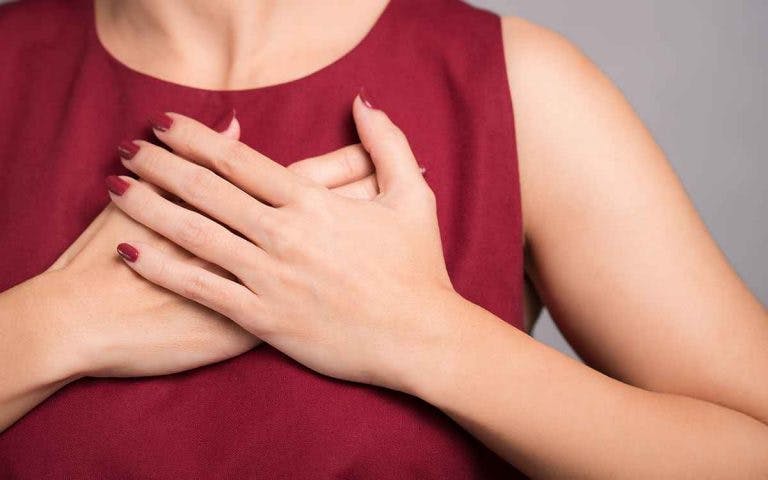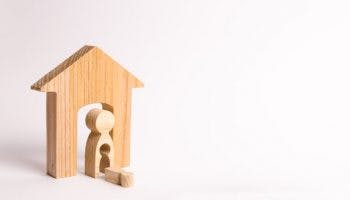Top 3 Functions of the Heart That You Don’t Know (But Should)
Published | 6 min read
Functions of the heart include maintaining blood circulation and being the centre of spirituality and mental wellness.

The function of the heart involves not just maintaining a normal heart rate and circulation of blood in the body. It has a huge influence on our mind and mental wellness as well. It’s no wonder Traditional Chinese Medicine (TCM) considers it the “monarch” of all organs. In contrast, the other organs are courtiers that help the heart perform its functions.
The heart not only preserves life by ensuring adequate blood supply to all the organs but is also the hub of spirituality and thinking.
Let us understand the functions of the heart beyond what is known to us and know how to keep it revitalised.
Maintains Normal Heart Rate and Blood Circulation
The heart is at the centre of our circulatory system. It pumps blood to every part of the body through the blood vessels with every beat. The strong pumping action of a healthy heart depends on heart qi and manifests as a normal heart rate and rhythm. The incessant beating of the heart ensures nutrition to all the organs and keeps them vitalised. So, a rhythmic and forceful pulse and rosy complexion in an individual is indicative of good health.
Disturbances in the heart qi, yin, yang, or blood give rise to ill-health, manifested by a feeble pulse, irregular pulse, and pale- or dark-purplish complexion.
Restores the Spirit

TCM considers the heart as the centre of mind and consciousness and where the spirit (“Shen“) lives. The overall vitality of a person, seen through the eyes, complexion and responses, is dependent on the spirit. The existence of the spirit in the body also determines how well a person will respond to an illness and the prognosis of the disease.
The heart yin and blood play a critical role in keeping the spirit nourished. Individuals may have symptoms of sleeplessness, mental disturbances and palpitations if there is a deficiency in the heart yin and blood. A person has clear thinking and a sound mind if the spirit is well nourished.
Association of the Heart and Tongue
According to TCM principles, the 7 orifices (七窍) in our body hold access to the essence of the 5 organs. These 7 orifices include the anus, mouth, nose, tongue, ears, eyes and external genitals. The health of an organ can be assessed by examining the changes in the corresponding orifice. Specifically, the orifice with access to the heart’s essence is the tongue. Analysing the tongue can help us understand the nourishment and health of the heart.
A pinkish-red tongue with a soft and flexible body and sensitive taste buds indicates normal heart functions.
A pale white tongue and loss of taste sensations indicate imbalances in the heart yin and yang levels, or a blood, qi or yang deficiency. This is evident from the findings of a study, which found that 20.8% of the patients presented with pale tongues, which are indicative of a blood or yang qi deficiency.
When there is adequate blood circulation to all body parts, the skin is adequately nourished and appears radiant. A rosy and radiant complexion is also indicative of a healthy heart.
The functions of speech and taste perception by the tongue are also dependent on the normal functioning of the heart.

Preventing Heart Disease
A healthy heart is essential for optimal physical and mental health. You should keep it revitalised with a balanced diet and exercise. You can also give a boost to your health through traditional herbal remedies.
Red coloured foods help prevent heart disease
The colour red benefits the heart according to the Five-Element theory in TCM. Thus, eating red coloured fruits and vegetables can boost your heart health. These foods are generally rich in vitamin A, iron, beta-carotene, and lycopene. They play an essential role in maintaining blood vessel elasticity and a healthy blood flow. They also help to protect the cell membranes and have anti-oxidant activity. Include foods such as tomatoes, beetroot, berries, and hawthorn fruit in your diet to strengthen your heart.
Herbs that prevent heart attacks
Herbs have been used since ancient times to improve the health and vitality of the organs. The incidence of heart attacks is increasing in younger people due to sedentary habits and unhealthy lifestyles. Narrowing and obstruction of the blood vessels to the heart can cause heart attacks. Red Sage, also known as dan shen, is particularly useful in preventing heart attacks and improving blood supply to the heart as it widens the blood vessels supplying the heart. It can also help improve circulation in the smaller blood vessels supplying, reduce blood thickness, and improve overall circulation in the body.
Other herbs known to improve blood circulation and boost heart health are Chinese Angelica (Dang Gui) and prepared fleece flower root (Zhi He Shou Wu). Though, it’s worth noting that the use of fleeceflower root can cause side effects like diarrhoea, nausea, vomiting and abdominal pain. It also links to liver damage, albeit rarely. Chinese Angelica improves blood and blood circulation, enhances vitality and helps in regulating the menstrual cycle. Prepared fleeceflower root enhances the functioning of the liver and kidneys. You can take them as supplements to help enrich the blood, nourish heart yin and counter ageing symptoms.
Another herb that helps to improve blood circulation and increase the production of red blood cells is notoginseng (san qi), also called tian qi or panax notoginseng. It is also used as a tonic in puberty. It relieves blood stasis and directs blood to the growing bones and other parts of the body. However, it’s of utmost importance that you discuss each herb’s suitability with a healthcare provider before consumption. Particularly if you’re unsure as to whether or not you have an underlying medical condition.
The function of the heart is much more than just maintaining circulation in the body. The heart is core to our consciousness, vitality and spirituality. Take good care of your heart and boost its functions with natural supplements to live a life full of energy and health!
This is an adaptation of an article, “TCM: Understanding the Role of the Heart”, which first appeared on Eu Yan Sang website.
References
- Liu B. Integrative Views of the Heart in Chinese and Western Medicine. Integrative Medicine International. 2017;4(1-2):46-51.
- Davidson P, Hancock K, Leung D, Ang E, Chang E, Thompson DR, Daly J. Traditional Chinese Medicine and heart disease: what does Western medicine and nursing science know about it? European Journal of Cardiovascular Nursing. 2003 Sep 1;2(3):171-81.
Share this article on






